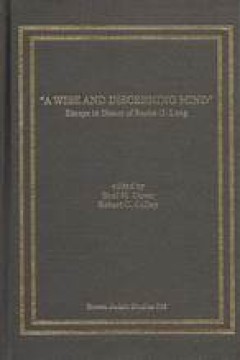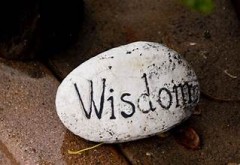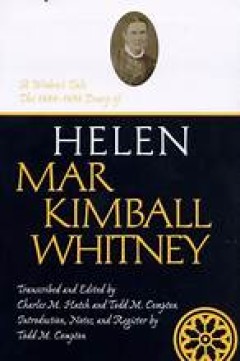Filter by

50 years after the perceptron, 25 years after PDP: Neural computation in lang…
This Research Topic aims to showcase the state of the art in language research while celebrating the 25th anniversary of the tremendously influential work of the PDP group, and the 50th anniversary of the perceptron. Although PDP models are often the gold standard to which new models are compared, the scope of this Research Topic is not constrained to connectionist models. Instead, we aimed to …
- Edition
- -
- ISBN/ISSN
- 9782889192571
- Collation
- -
- Series Title
- -
- Call Number
- -

2050 China: Becoming a Great Modern Socialist Country
This book is open access under a CC BY-NC-ND 4.0 license. This book is arranged and developed around the theme of “2050 China,” it analyzes the factors and advantages of the Chinese road to socialist modernization, explores and summarizes the development goal and the basic logic of the socialist modernization of China, and further shows the general basis of the primary stage of socialism. A…
- Edition
- -
- ISBN/ISSN
- -
- Collation
- -
- Series Title
- -
- Call Number
- -

15th International Conference “Intelligent Systems” (INTELS’22)
The 15th International Conference "Intelligent Systems - 2022" (INTELS'22) was held on 14-16 December 2023 at the Russian Academy of Sciences, Moscow, Russia. It is a biennial event with a thirty-year history. INTELS'22 focused on the areas of intelligent systems and artificial intelligence, their theoretical aspects, and their application to sustainable development. Most of the papers are devo…
- Edition
- -
- ISBN/ISSN
- 9783036592886
- Collation
- -
- Series Title
- -
- Call Number
- -

A Wise and Discerning Mind: Essays in Honor of Burke O. Long
An edited volume of essays dealing with the Hebrew Bible and its cultural environment.
- Edition
- -
- ISBN/ISSN
- 9781951498375
- Collation
- -
- Series Title
- -
- Call Number
- -

A Wise and Discerning Mind: Essays in Honor of Burke O. Long
An edited volume of essays dealing with the Hebrew Bible and its cultural environment.
- Edition
- -
- ISBN/ISSN
- 9781951498375
- Collation
- oer.unej.ac.id
- Series Title
- -
- Call Number
- -

A Wise and Discerning Mind
This is an edited volume of essays dealing with the Hebrew Bible and its cultural environment.
- Edition
- -
- ISBN/ISSN
- 9781951498382
- Collation
- oer.unej.ac.id
- Series Title
- -
- Call Number
- -

“Self” in Language, Culture, and Cognition
This book explores socio-cultural meanings of ‘self’ in the Chinese language through analysing a range of conversations among Chinese immigrants to Australia qualitatively on the topics of individuality, social relationships and collective identity. If language, culture and cognition are major roads, this book is the junction that unites them by arguing that selfhood occurs at their interfa…
- Edition
- -
- ISBN/ISSN
- 9789027204691
- Collation
- -
- Series Title
- -
- Call Number
- -

Advances in Characterizing and Addressing Land Degradation and Associated Eco…
- Edition
- -
- ISBN/ISSN
- -
- Collation
- -
- Series Title
- -
- Call Number
- -
- Edition
- -
- ISBN/ISSN
- -
- Collation
- -
- Series Title
- -
- Call Number
- -

Ocean Remote Sensing with Synthetic Aperture Radar
The ocean covers approximately 71% of the Earth’s surface, 90% of the biosphere and contains 97% of Earth’s water. The Synthetic Aperture Radar (SAR) can image the ocean surface in all weather conditions and day or night. SAR remote sensing on ocean and coastal monitoring has become a research hotspot in geoscience and remote sensing. This book—Progress in SAR Oceanography—provides an u…
- Edition
- -
- ISBN/ISSN
- 9783038427209, 9783038427193
- Collation
- -
- Series Title
- -
- Call Number
- -

Understanding and Developing Student Assessment Literacy = Translating Resear…
This book provides research-based approaches and classroom strategies for frontline teachers and practitioners, to aid them in formulating actionable approaches to develop student assessment literacy (SAL) in school and higher education sectors. This book helps readers to: Understand the concept of SAL and its significant role in assisting students’ achievements of desirable learning goals…
- Edition
- -
- ISBN/ISSN
- 9789819794843
- Collation
- VI, 76 hlm; ill., lamp.,
- Series Title
- -
- Call Number
- -
 Computer Science, Information & General Works
Computer Science, Information & General Works  Philosophy & Psychology
Philosophy & Psychology  Religion
Religion  Social Sciences
Social Sciences  Language
Language  Pure Science
Pure Science  Applied Sciences
Applied Sciences  Art & Recreation
Art & Recreation  Literature
Literature  History & Geography
History & Geography